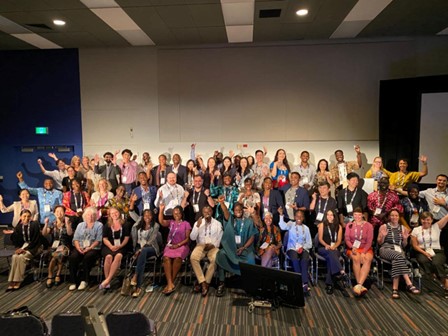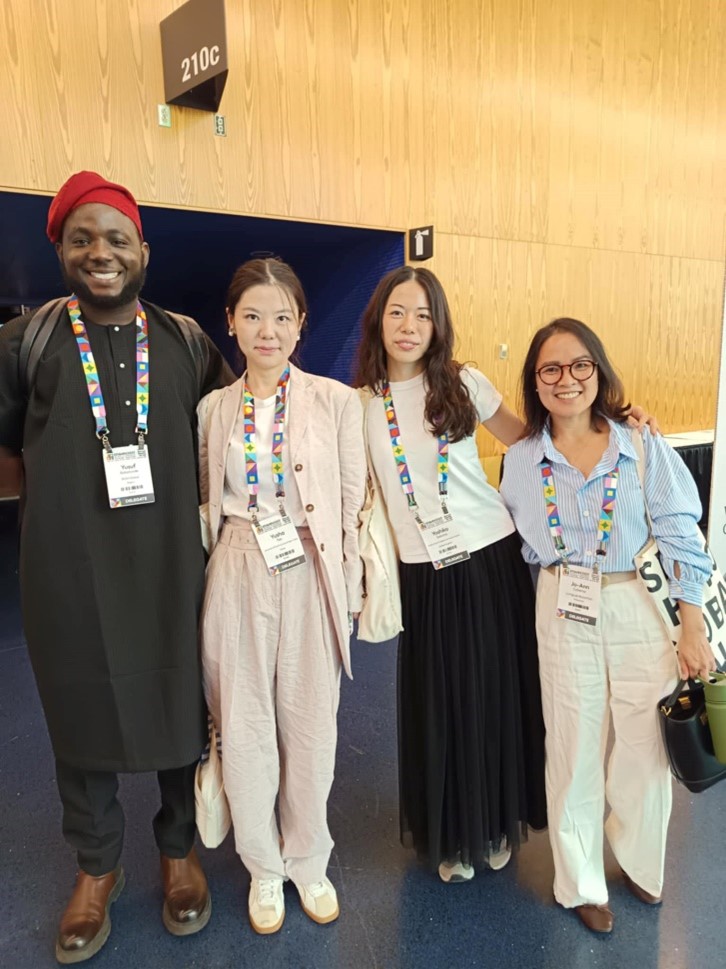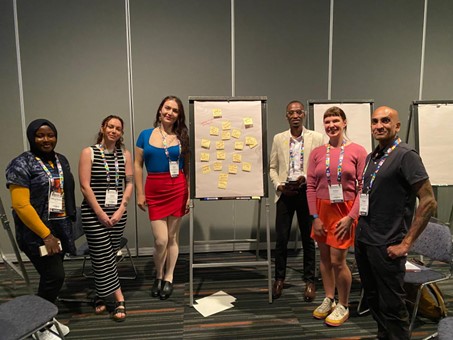Guest Authors: Jo-Ann Caberoy (Philippines) and William Muthama (Kenya), INSPIRE Youth Co-creation Open Call Finalists
At the STI & HIV World Congress 2025 in Montreal, Canada, INSPIRE finalists joined a global co-creation workshop that brought together researchers, youth advocates, and communities to explore new ways of addressing sexual and reproductive health challenges. For INSPIRE, this was a proud moment, seeing young leaders not only participate but shape conversations on how inclusive, youth-driven solutions can take root.
The reflections of these finalists capture the spirit of collaboration, storytelling, and shared power that defined the workshop. This piece brings their voices together to highlight the lessons they learned, their personal experiences, and why co-creation is central to building more sustainable health solutions.

Why co-creation matters
Too often, sexual health interventions are designed for communities rather than with them. Both finalists agreed that the workshop challenged this traditional model by positioning youth and people with lived experiences as active co-creators.
One finalist explained, “Communities, including youth, co-define what matters. Lived experiences are treated as expertise. Solutions are developed and owned together. It’s not just engagement—it’s power-sharing.” For them, co-creation represented more than participation, it was about genuine collaboration and equitable partnerships that give young people the opportunity to lead.

Lessons from Montreal
The workshop unfolded in three parts: opening presentations and panel discussions, hands-on co-creation activities, and finally, refining the draft TDR/UNICEF practical guide on youth co-creation in health research. This design ensured that participants were not passive listeners but active contributors throughout.
For one finalist, authenticity stood out as a central value, “Personal stories and lived experiences enriched every conversation. Asking the right questions fostered genuine participation, not just token engagement.”
Another finalist noted how the Congress as a whole was a turning point in how young people are seen, “It was inspiring to see young people recognized not just as vulnerable groups, but as innovators and active partners in health solutions. The workshop showed that co-creation can and should be integrated even into traditionally hierarchical fields like HIV programming.” These reflections underline how co-creation is not just a method but a mindset shift, one that insists on valuing diverse voices and creating equitable space for dialogue.
The power of storytelling
Both finalists emphasized the transformative role of storytelling. One, who founded Youth Pulse in Kenya, shared how the co-creation approach deepened their belief in the power of stories to shift narratives, “In my work as a journalist, I’ve always believed in the power of storytelling, not just to inform, but to spark change. At Youth Pulse, storytelling is no longer a one-sided report—it’s a collaborative tool, letting young people shape their own stories.” This message resonated across the workshop, where stories from different cultural and professional backgrounds highlighted a shared question: How do we build solutions that truly reflect the people they’re meant to serve?
Collaboration and community spirit
Beyond structured sessions, the workshop fostered friendships and a spirit of collective action. Participants left not only with new insights but also with solidarity that transcended borders. “It was comforting to know that despite our diversity, we understood that working with people, especially those with lived experience requires openness and humility. We ended the day with new ideas and new friends rallying together against STIs and HIV,” one finalist recalled. This spirit of community was perhaps one of the most impactful outcomes. It showed that co-creation is not just about producing outputs, it is about building networks of trust and collaboration that continue long after the workshop ends.

Looking ahead
For both finalists, Montreal was not an endpoint but a beginning. One finalist left motivated to expand co-creation beyond mental health to sexual and reproductive health, youth civic engagement, and media production. “They say youth are the future, but co-creation taught me we are already the present. If given the space, tools, and respect, we don’t just contribute, we lead the way.”
The other finalist called the workshop “more than just a workshop—it’s a movement,” emphasizing the need to continue building participatory approaches in health research and advocacy. “We look forward to the outcomes of our sessions, which will contribute to enhancing community engagement and co-creating inclusive STI campaigns led by young people.”
Taken together, these reflections underline a powerful truth: co-creation transforms the way health challenges are addressed by valuing lived experiences, fostering authentic collaboration, and amplifying youth leadership. The STI & HIV World Congress 2025 Co-creation workshop was not just a space for dialogue, it was proof that when young people are given the opportunity to co-create, they bring innovation, resilience, and solutions that can reshape the future of global health.
